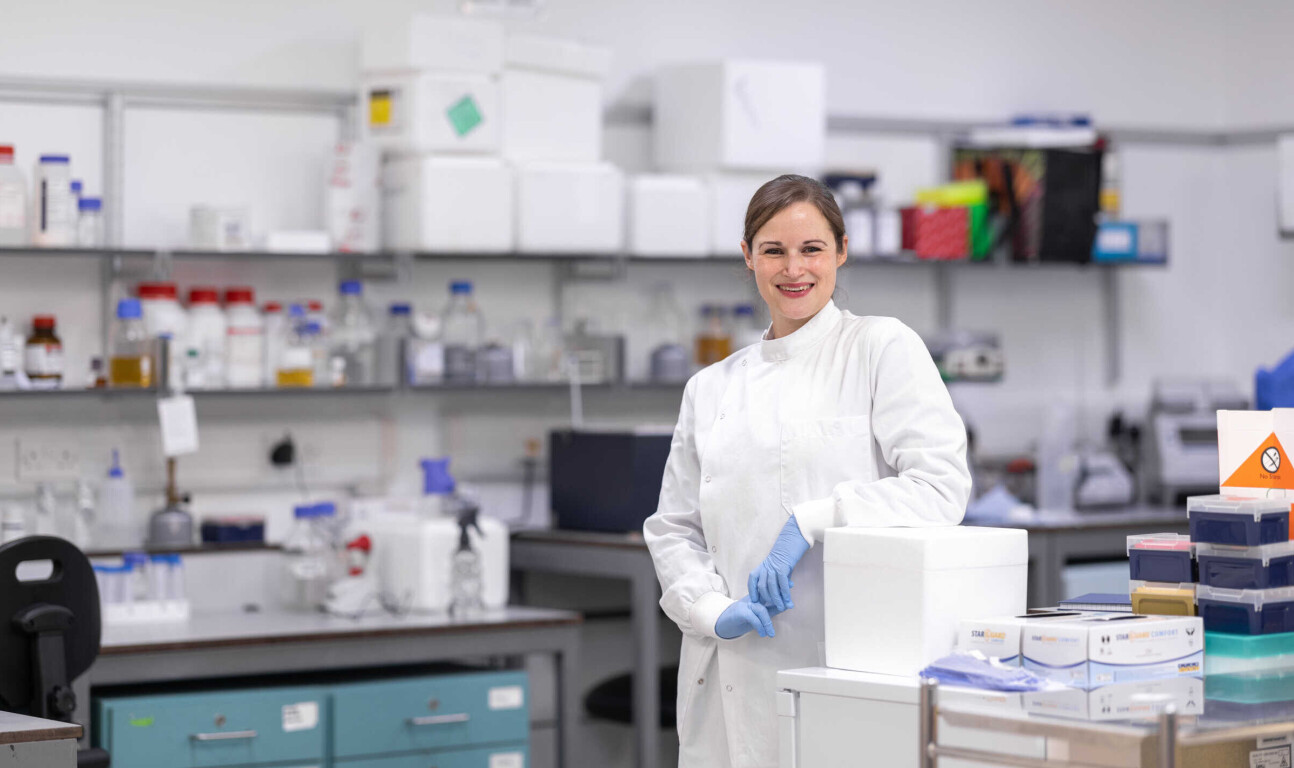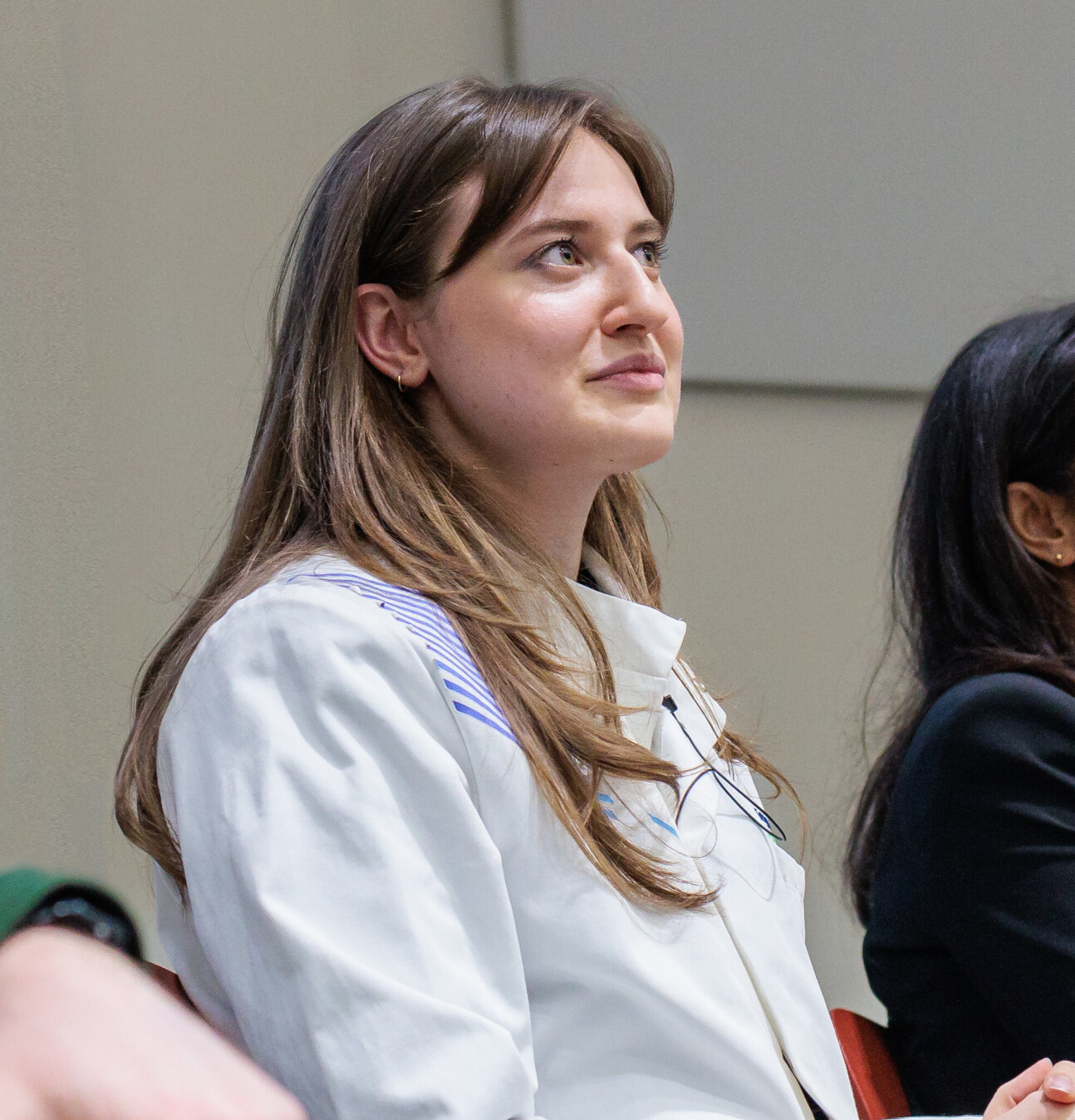Q&A: How can medical science better serve women?

Underfunding in reproductive health research, exclusion from clinical trials and misinformation mean women are being underserved by medical science.
Recent statistics suggest that only 2% of medical research funding is spent on pregnancy, childbirth, and female reproductive health. This is despite one in three women reporting a reproductive or gynaecological health problem.
Additionally, clinical trials often neglect women’s reproductive health and there are times when women have been excluded from research altogether. These gaps in our medical knowledge mean we risk not knowing how drugs work in women and whether they have different side effects.
Ellie Cawthera speaks to three Imperial experts about how medical science can better serve women:
- Dr Victoria Male is a senior lecturer in reproductive immunology. She has studied how COVID-19 infection and vaccination affect female fertility, pregnancy and menstrual cycles. Her activity on Twitter has helped to tackle misinformation about COVID-19 vaccines’ impact on fertility.
- Dr Allyah Abbas-Hanif is an honorary senior clinical lecturer in public health and primary care, a consultant in Pharmaceutical Medicine, a GP and Head of Clinical Development at academic spinout Mirzyme. She has advocated for the appropriate inclusion of pregnant women in drug development processes and was a commissioner on the recent report ‘Healthy Mum, Healthy Baby, Healthy Future.’
- Diana Canghizer is a human-centred design engineer and master’s graduate from Imperial College London and the Royal College of Art. She is the founder of vera AI – a platform focusing on hormonal and gynaecological health management through hyper-personalised patient guidance. Diana received the Young Innovators Award in 2023 granted by Innovate UK.
Why are women under-represented in clinical trials and what are the implications?
Dr Allyah Abbas-Hanif – “The Thalidomide scandal in the 1950s and 1960s saw 10,000 children born with severe deformities after it was introduced as morning sickness medication. Sadly, the horror it caused has led to a protectionism that’s seen huge underrepresentation of women in clinical trials to the extent that women have been excluded entirely. It wasn’t until 1994 that the Food and Drug Administration allowed women to be included in stage three clinical trials - quite far along the drug development process.
“When you develop a drug in a white 50-year-old male, you are not accounting for the physiological and biochemical differences in others - not just women, but in children and ethnic communities too. But progress has been slow. It was determined only a few years ago that both sexes should be included in clinical trials from much earlier.
We need to look for therapeutic targets specific to women, and that work can happen now. Dr Allyah Abbas-Hanif
“Heart attack research is one area where this problem has played out. When you think of a heart attack, you think of a man having central crushing chest pain radiating to his left arm. That's not the case in many women, who often have subtler symptoms such as neck pain or nausea. But, despite heart attacks being the second most common cause of death in the UK, this is not well known - even by doctors. And it’s led to awful statistics such as 8,000 women dying from delayed diagnosis of heart attacks in England and Wales between 2002 to 2013.
“Even for diseases specific to women, we are a long way off. Endometriosis for example affects 10% of women of reproductive age, but diagnosis takes seven years.”
Should medicines be tested in pregnancy?
 Dr Victoria Male – “Not testing medicines in pregnancy causes problems. When people on lifesaving or life-enhancing medication become pregnant, often their first question is, ‘is it safe for me to be taking this?’ Too often our answer is that we don't know.
Dr Victoria Male – “Not testing medicines in pregnancy causes problems. When people on lifesaving or life-enhancing medication become pregnant, often their first question is, ‘is it safe for me to be taking this?’ Too often our answer is that we don't know.
“In the 2013 to 2016 Ebola outbreak, the case fatality rate among those who were pregnant was 93%, and all those who survived lost their babies. Despite the clear danger of Ebola, pregnancy was an exclusion criterion in vaccine trials. A phrase sprang up: ‘We are being protected to death’. In the aftermath, the PREVENT guidelines were published for the inclusion of pregnant participants in vaccine trials in public health emergencies.
“But we didn’t use them for COVID-19. We knew early on that COVID in pregnancy was dangerous. It caused babies to be born too soon, or to be stillborn. But pregnancy was an exclusion criterion in the vaccine trials so when they first became available, we didn't have information on whether they were safe and effective during pregnancy. This meant pregnant people didn’t have the vaccine as early as they could have done, putting themselves and their babies at increased risk of COVID-19 infection. Lives could have been saved.”
What else is holding back our knowledge of women’s health?
Dr Allyah Abbas-Hanif – “As well as underrepresentation in clinical trials, underfunding in women’s health research is a real issue with only two per cent of medical research funding being spent on pregnancy, childbirth, and female reproductive health. Contributing to and compounding these problems are the perceived financial and reputation risks that research sponsors and insurers feel they are taking on when including pregnancy in trials. So regardless of whether there’s appetite from researchers and pregnant people, the funding and insurance won’t be agreed for a trial to go ahead in the first place. However, there seems to be a way forward - this risk seems to be more acceptable to academic institutions than to private companies so there needs to be a move towards more partnerships and collaboration between the private and public sector.”
How do miscommunication and misinformation play a role?
 Diana Canghizer – “Misinformation and miscommunication are big factors in late diagnosis and misdiagnosis of women’s health issues.
Diana Canghizer – “Misinformation and miscommunication are big factors in late diagnosis and misdiagnosis of women’s health issues.
“We noticed recently that people lost their trust in certain doctors or in certain medical recommendations coming from the government. People want to know what the data is and why those recommendations have been made but this information isn’t always readily available, nor accessible. So, in its place you have misinformation. “
“The amount of misinformation on social media is terrifying. One particularly concerning piece of misinformation was that the COVID vaccine caused infertility. This hampered the uptake of the vaccine and ultimately led to poorer health outcomes amongst women.”
Dr Victoria Male – “One contributing factor to this was the effect of COVID vaccination on the menstrual cycle. Some people noticed that the period they had after the vaccine was unusual. But we didn’t know anything about this from the vaccine trials because we didn't ask participants about their periods.
“We ultimately found that 4-5% of people will have a heavier-than-usual or later-than-usual period immediately after they're vaccinated and this goes back to normal the next cycle. But the fact that it took us a year to find this out had an unexpected consequence - misinformation had circulated that the COVID vaccines would harm fertility.
“I want to be clear that they don't. We knew that from the outset. But the fact that we couldn't give a clear answer to the question, ‘Does vaccination affect the menstrual cycle, and if so, how much and for how long?’ made some people hesitant about getting vaccinated which will have led to an increased burden of infection amongst the whole population.
“So, we had a situation where not properly considering female reproductive health increased the burden of a disease that affects us all.”
What lessons can we draw from the pandemic?
Dr Victoria Male – “It shouldn't have been a surprise to us that we were going to want to vaccinate pregnant people, and we should have known that we were going to need the evidence from vaccine trials by involving pregnant people earlier.
“A phase three clinical trial for the Pfizer vaccine specifically in those who are pregnant failed to recruit participants because by the time the trial got off the ground, everyone was being offered the COVID vaccine as part of their routine antenatal care. And they couldn't ethically ask people to refuse it in order to be in the control group. So, by not including pregnant participants from the outset, we lost the opportunity to ever do that. We should use the PREVENT guidelines in any future public health emergency.
“Another learning point that I really hope is enacted is asking about menstrual effects in clinical trials. There is evidence that we have menstrual effects from other vaccines too, but we never thought about it before and we could have found out really easily by asking the question. It’s a basic aspect of health that's so important to so many people as a measure of how they're getting along in their own bodies.”
Dr Allyah Abbas-Hanif – “We don't know what the next pandemic will be. But what we can work on right now is a better understanding of women's and girls’ biochemistry and physiology. Women are not just a bag of hormones that goes up and down. We need to look for therapeutic targets specific to women, and that work can happen now. Otherwise, we’ll be on the back foot for the next pandemic that's coming our way.”
What are some ways forward to tackle these issues?
Diana Canghizer?– “AI has a huge potential when it comes to personalised women’s healthcare. I’m developing vera AI - a hyper-personalised health platform that aims to make hormonal and gynaecological health data accessible for everyone to understand and communicate to their doctors. It would be able to guide you to help manage or monitor your symptoms and prepare for consultations.
“vera uses AI and machine learning to understand data patterns, in order to map personalised hormonal profiles. These can be used for a faster diagnosis and a more effective personalised treatment.”
AI has a huge potential when it comes to personalised women’s healthcare. Diana Canghizer
Dr Allyah Abbas-Hanif – “The Women's Health Strategy for England is a really positive step that the government has taken. With women’s health, we're talking about whole lifespan of 51% of the country. I think more awareness of issues in women’s health would be the first and best way to make things happen. More people need to understand and advocate for their mum, wives, daughters, sisters and female friends, who are facing problems because we don’t invest and understand women’s health issues.
“We've seen success with things like the menopause – lots more vocalisation has led to government and workplace policies that aim to support highly experienced menopausal people in the workforce. Having more people – not just women – understand the issues and advocating for change will have a huge impact. The easy wins are there, but without advocacy, we're not going to get anywhere.
“We also need better data. Certain groups have been overlooked and we need to incentivise getting this data. We need to ensure that researchers, drug developers and policymakers think about these groups because they are being failed.”
Dr Victoria Male – “One easy win is disaggregated sex reporting – that means analysing clinical trial data from women and men separately which is not always done as you might expect. Another is asking those simple questions around female reproductive health as part of any clinical trial.
“The less easy win is funding. There is a certain amount of funding for medical research and without increasing it, we could reallocate it into women’s health research. It's not an easy win – those not working on female reproductive health will disagree. But it's something we should consider.”
Article text (excluding photos or graphics) © Imperial College London.
Photos and graphics subject to third party copyright used with permission or © Imperial College London.
Reporter
Ellie Cawthera
Communications Division